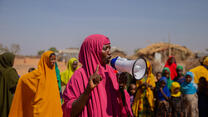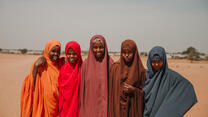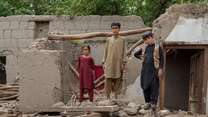Women-led and women’s rights organizations (WLOs/WROs) in Yemen are the first responders in humanitarian crises, delivering lifesaving services, advocating for protection, and reaching women and girls in areas often inaccessible to international actors. Despite their vital role, these organizations face chronic underfunding, exclusion from decision-making spaces, and systemic barriers that undermine their sustainability. Smaller and community-based groups—those closest to the most at-risk populations—are particularly affected, often denied overhead support, long-term funding, or meaningful inclusion in localization efforts.
The International Rescue Committee (IRC) has long partnered with Yemeni women’s organizations to support the provision of specialized services and strengthen protection systems. In 2024, the IRC launched new research to better understand the challenges facing these groups and identify concrete steps toward more equitable partnerships. We are calling on donors, INGOs, and humanitarian actors to shift power to Yemeni WLOs/WROs by reforming funding systems, ensuring inclusive coordination, and investing in their leadership. As humanitarian funding contracts, now is the time to act with solidarity and ensure that these frontline organizations are recognized and resourced as essential actors in Yemen’s humanitarian response.
The new policy paper calls for:
- A shift in power. Donors and international NGOs must embed women’s organizations in coordination and decision-making structures. Localization is not about numbers—it is about who leads and who decides.
- Reform to funding systems. Calls for proposals must be transparent, inclusive, and accessible to grassroots groups. Budgets must account for core needs like rent, security, and staff salaries—not just direct project costs.
- Investments in capacity—on local terms. Support should reflect women’s organizations’ self-identified priorities, not external metrics. Larger, well-established national groups should be resourced to mentor and elevate emerging organizations.
- Fostering peer collaboration. Communities of practice can provide cost-effective platforms for knowledge sharing, innovation, and solidarity—helping to sustain women-led responses as INGOs scale down.
- Strengthening advocacy. Women’s organizations must be recognized not only as service providers but as leaders. Their perspectives must shape policies, programs, and reforms.



